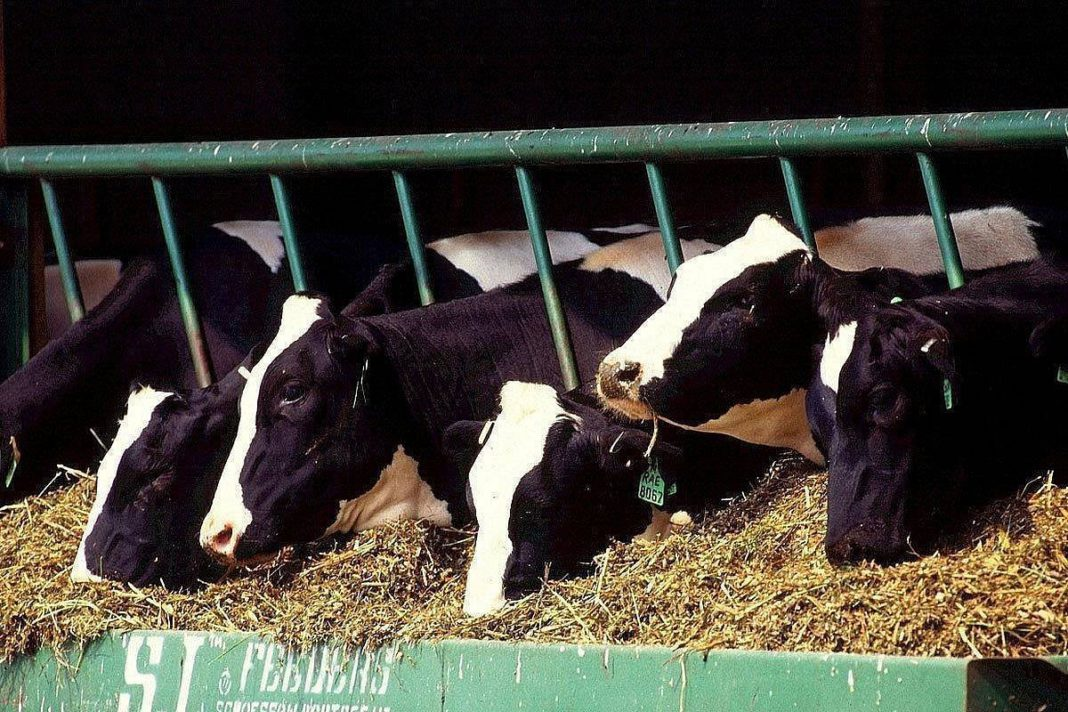Data and Information: The Unseen Heroes of Emergency Response for Feed and Fodder Management
Posted by Patricia Lumba on 11 October 2023 5:35 PM CAT

Opinion Piece by Patricia Lumba; Senior Knowledge Management Officer, AU-IBAR

In a world where natural disasters and unforeseen crises have become all too familiar, the efficiency and effectiveness of our emergency responses are paramount. While we often hear about the heroic efforts of first responders and the importance of humanitarian aid, there's a critical aspect of emergency response that often goes unnoticed – the management of feed and fodder resources for livestock. It's a topic that doesn't often make headlines, but its significance cannot be overstated. At the heart of this crucial task lies the unsung hero: data and information. In this opinion piece, I will delve into the indispensable role of data and information in emergency response for feed and fodder.
1. Early Warning Systems: A Race Against Time
In times of crisis, every minute counts. To anticipate and prepare for these crises, an arsenal of data and information is indispensable. This arsenal includes insights into weather patterns, disease outbreaks, and the availability of feed and fodder resources. Such data can be the lifeblood of early warning systems. Imagine having the ability to predict a crisis before it strikes, providing governments and organizations with the time they need to respond adequately. Data empowers institutions to issue those precious early warnings.
2. Resource Assessment: The Pulse of Crisis Management
In the throes of an emergency, the availability and accessibility of feed and fodder resources become a lifeline for livestock and, consequently, the livelihoods of countless communities. To assess the state of these resources, including their geographic distribution, availability, and quality, we turn to data and information. This invaluable insight allows stakeholders to pinpoint areas that require immediate intervention and ensures that the response is both targeted and efficient.
3. Coordination of Efforts: United We Stand
Effective emergency responses are often the result of collaborative efforts involving multiple stakeholders – governments, NGOs, international organizations. Here, data and information become the universal language that enables effective coordination. AU-IBAR, among other institutions, functions as a central hub for collecting, collating, and disseminating data, facilitating a coordinated response that ensures resources reach those who need them most. Without this centralization of information, the well-oiled machinery of a coordinated response could quickly grind to a halt.
4. Resource Allocation: Navigating Scarcity with Precision
Resources during a crisis are limited and precious. Making the right decisions about their allocation is nothing short of a tightrope walk. Accurate data on livestock populations, their nutritional needs, and the availability of feed and fodder allows institutions like AU-IBAR to make informed decisions about resource allocation. This targeted approach ensures that resources are distributed where they will have the most significant impact, mitigating the human and economic costs of these crises.
5. Monitoring and Evaluation: The Power of Adaptation
Once the wheels of an emergency response are in motion, data and information remain instrumental in the monitoring and evaluation of the response's effectiveness. The ability to adapt in real-time, guided by data-driven insights, ensures that the response remains aligned with the evolving needs on the ground.
6. Lessons Learned: Building Resilience for the Future
After an emergency response, the data collected can be a treasure trove of wisdom. It allows institutions to assess the overall effectiveness of their response and identify areas for improvement. It enables us to learn from our experiences, refine our strategies, and develop better approaches for future crises.
In conclusion, data and information are the lifeblood of effective emergency responses, including in the context of feed and fodder management. The ability to predict, assess, coordinate, allocate, and evaluate resources relies on the availability of accurate and timely data. With these insights, institutions such as AU-IBAR play a critical role in ensuring that livestock, a linchpin of many communities' livelihoods, are protected during times of crisis. As the world faces increasing uncertainties and challenges, the importance of data and information in emergency response has never been more evident. The silent heroes behind the scenes, working tirelessly to ensure our collective resilience and readiness, deserve recognition and support for their invaluable role in safeguarding communities and their vital resources.